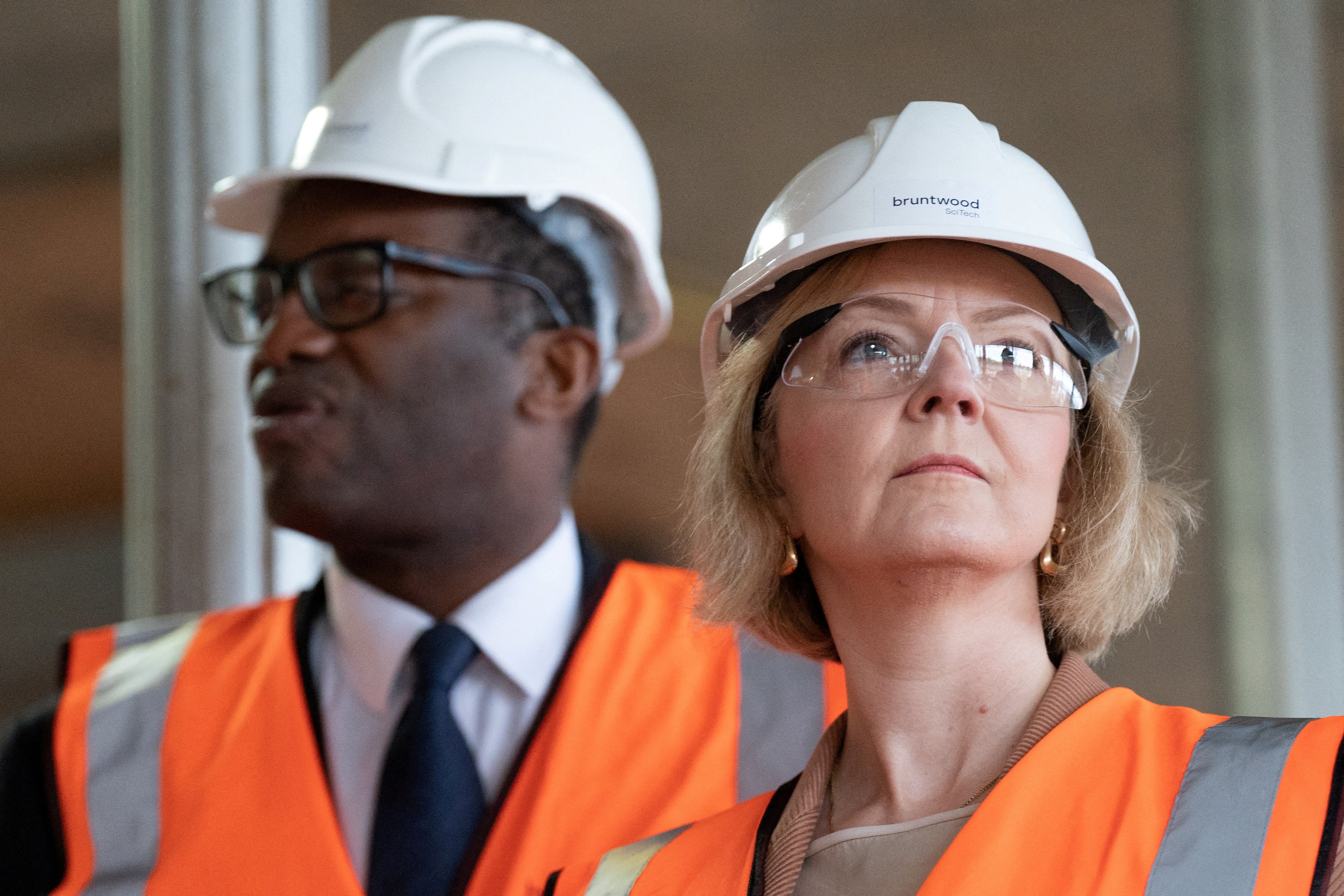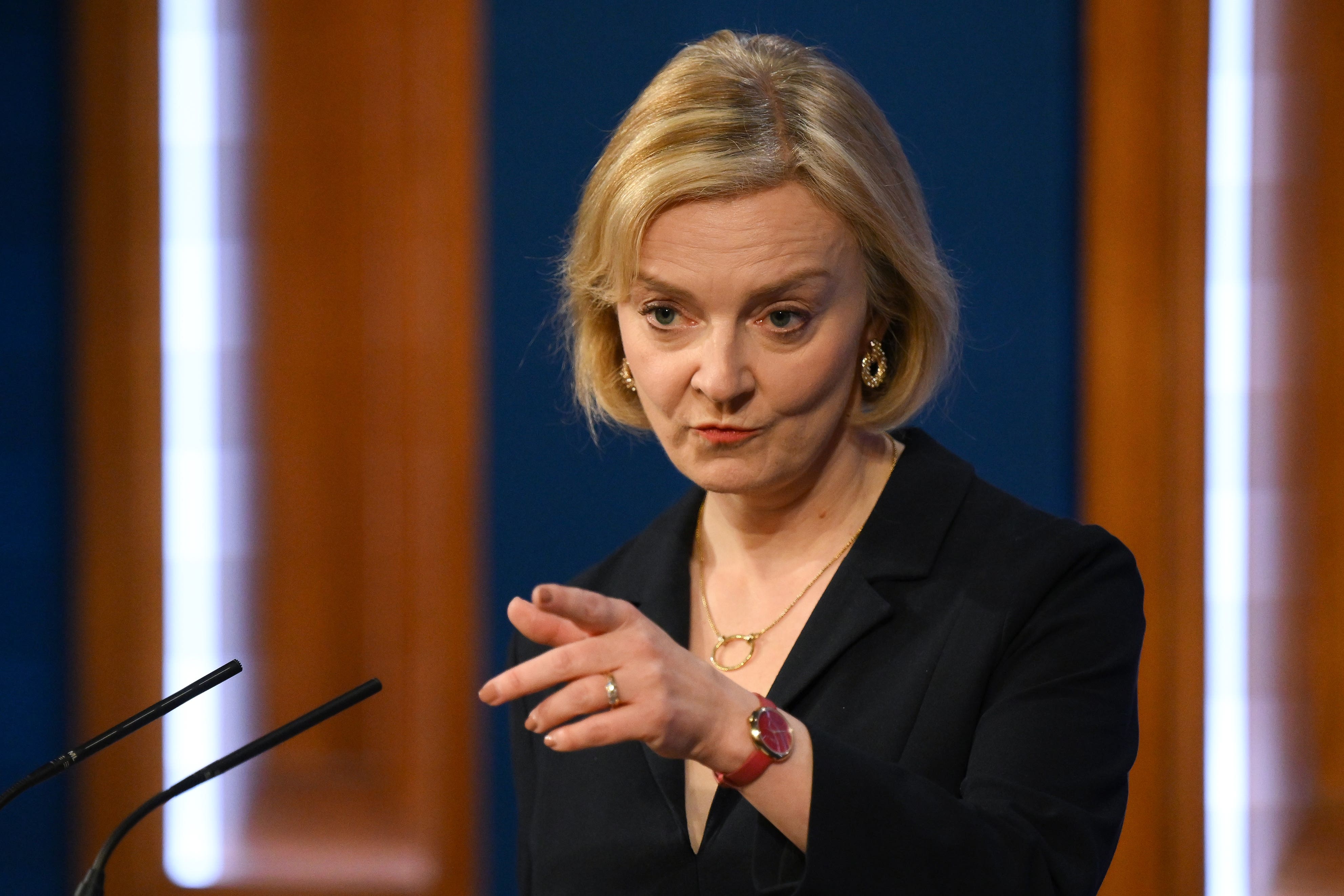Ex-Bank of England boss in scathing attack on Truss as he claims she turned UK into ‘Argentina on the Channel’
Mark Carney says ex-PM was in the ‘demolition business’ – as Truss tries to defend her economic policies on anniversary of mini-Budget disaster
Your support helps us to tell the story
From reproductive rights to climate change to Big Tech, The Independent is on the ground when the story is developing. Whether it's investigating the financials of Elon Musk's pro-Trump PAC or producing our latest documentary, 'The A Word', which shines a light on the American women fighting for reproductive rights, we know how important it is to parse out the facts from the messaging.
At such a critical moment in US history, we need reporters on the ground. Your donation allows us to keep sending journalists to speak to both sides of the story.
The Independent is trusted by Americans across the entire political spectrum. And unlike many other quality news outlets, we choose not to lock Americans out of our reporting and analysis with paywalls. We believe quality journalism should be available to everyone, paid for by those who can afford it.
Your support makes all the difference.Former Bank of England governor Mark Carney has launched a blistering attack on Liz Truss – accusing her of turning Britain into “Argentina on the Channel”.
Mr Carney said the former prime minister – who has launched her own attack on Rishi Sunak’s government – had a “basic misunderstanding of what drives economies”.
The ex-Bank chief, governor between 2013 and 2020, spoke out against Brexit and populists on the right during a speech in his native Canada.
He said they were in “the demolition business” and had treated tax cuts as a “Pavlovian reaction to every problem”.
Mr Carney added: “It meant when Brexiteers tried to create Singapore on the Thames, the Truss government instead delivered Argentina on the Channel.”
Argentina’s ongoing financial crisis has seen some of the highest interest rates in the world, topping a staggering 70 per cent, while Singapore is seen as a model of economic success with one of the highest GDPs in the world.
Ms Truss later lashed out at former the Bank of England governor, saying he was “defensive” about his role in the “25-year economic consensus that has led to low growth across the Western world”.
The spat came as Ms Truss used the one-year anniversary of his disastrous mini-Budget to attack the “anti-growth coalition” and urge the Sunak government to cut taxes, shrink welfare spending and raise the retirement age.
The former PM – booted out of No 10 by her own party after just six weeks – called on the Tory party to embrace free market ideologies and ditch some green commitments amid cost of living pressures.
Ms Truss began her speech at the Institute for Government by joking about having a “rather more relaxing September than I did last year”, before making repeated plugs for her upcoming book.

Deputy Labour leader Angela Rayner replied on Twitter/X: “Sadly most families across Britain are having a somewhat more stressful time because of what the Tories did to our economy by enabling your leadership.”
Ms Truss did not express regret about the consequences of her doomed package of £45bn of tax cuts last year – claiming it would only have made a “marginal difference” to the deficit. “I admit the communication wasn’t as good as I would want it to be,” she said in the Q&A after her speech.
Despite sparking turmoil by failing to convince the market she could balance the books, Ms Truss also rejected claims her tax cuts were “unfunded” during the speech. “This is not a fair or accurate description,” she said.
She also claimed that Mr Sunak’s government has spent £35bn more than she would have as prime minister, arguing that if the policies included in her growth plan had been followed, growth would have eventually been higher.
Ms Truss said she felt pressured by the Bank of England into committing to a “counterproductive” U-turn on her tax plans, the former Tory premier said. She also admitted she had never heard of the liability-driven investment (LDI) pension funds that were hit by her mini-Budget until after the economic crisis struck.
Asked about Mr Carney’s comments, she said: “Politicians should be held accountable and responsible for what we do, but when there are people with significant power, you know, I don’t feel that the same questions are necessarily asked about them.”
Conor Burns, the former Tory minister who was a close ally of Boris Johnson, said Ms Truss was now “toxic” with voters and a “drag anchor” to the right. “Only service she could provide is sustained silence,” he tweeted.

Former top Treasury official Rupert Harrison, the chief of staff to George Osborne when he was chancellor, said on Twitter/X that Ms Truss had a “brass neck” in giving advice to Mr Sunak.
Mr Harrison – running for as the Tory candidate in Bicester and Woodstock – said it was remarkable there was still no “genuine acknowledgment of the real mistakes that were made”, adding: “Happily, nobody in the Conservative party or the government is listening.”
Labour is calling on Mr Sunak to block Ms Truss’ resignation honour list, with the ex-PM believed to put around 14 names forward.
In a letter to Mr Sunak, Jonathan Ashworth, Labour’s shadow paymaster general, said that if the honours were accepted “those who crashed the economy” would be receiving an award for their service.
Ms Truss’ former chancellor Kwasi Kwarteng has said she was “not wired” to be prime minister, as the former chancellor turned on his old boss on the anniversary of their mini-Budget disaster.
“I love her dearly, she’s a great person, very sincere and honest,” he told the Telegraph’s political editor in a new book. “But if it hadn’t been the mini-Budget, she would have blown up on something else.”
The former chancellor added: “I just don’t think her temperament was right. She was just not wired to be a prime minister.”





Join our commenting forum
Join thought-provoking conversations, follow other Independent readers and see their replies
Comments